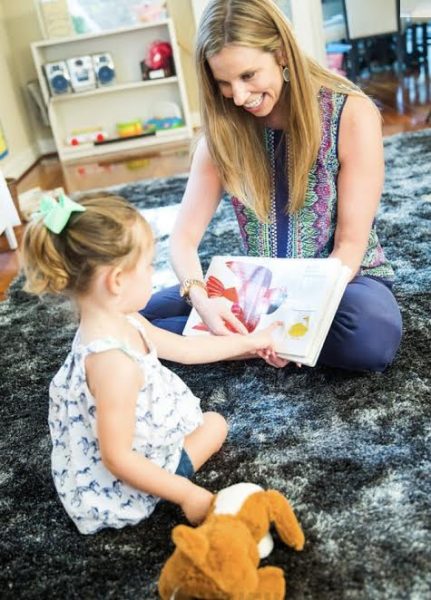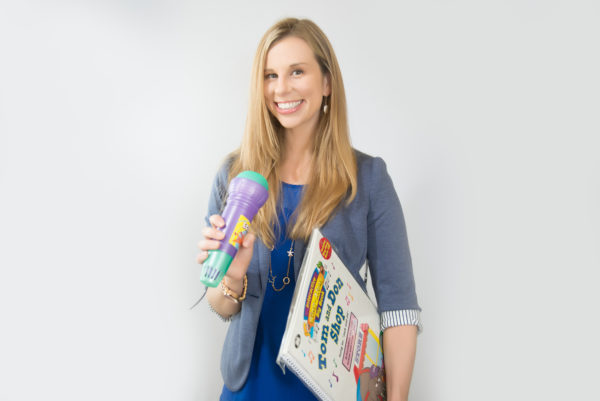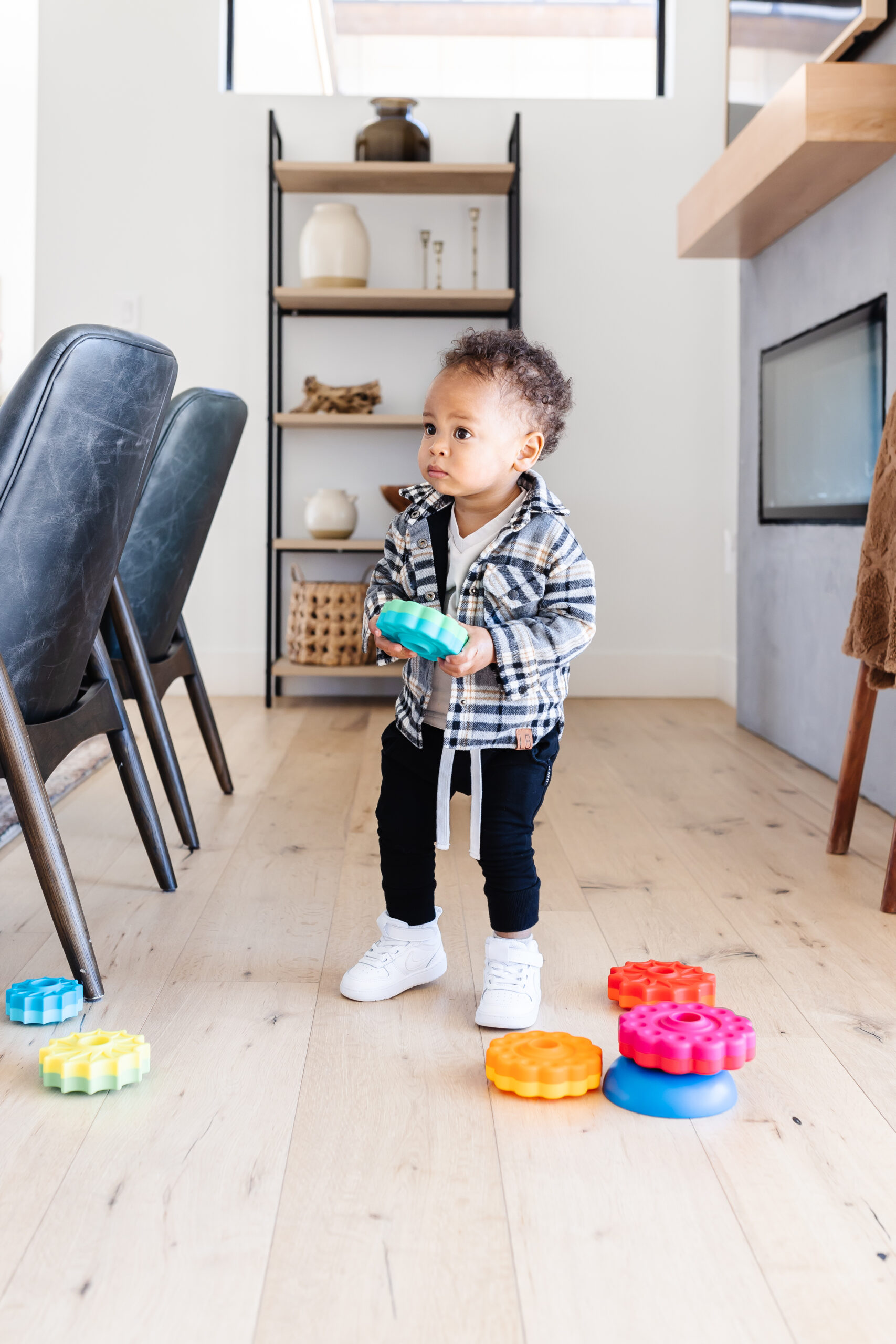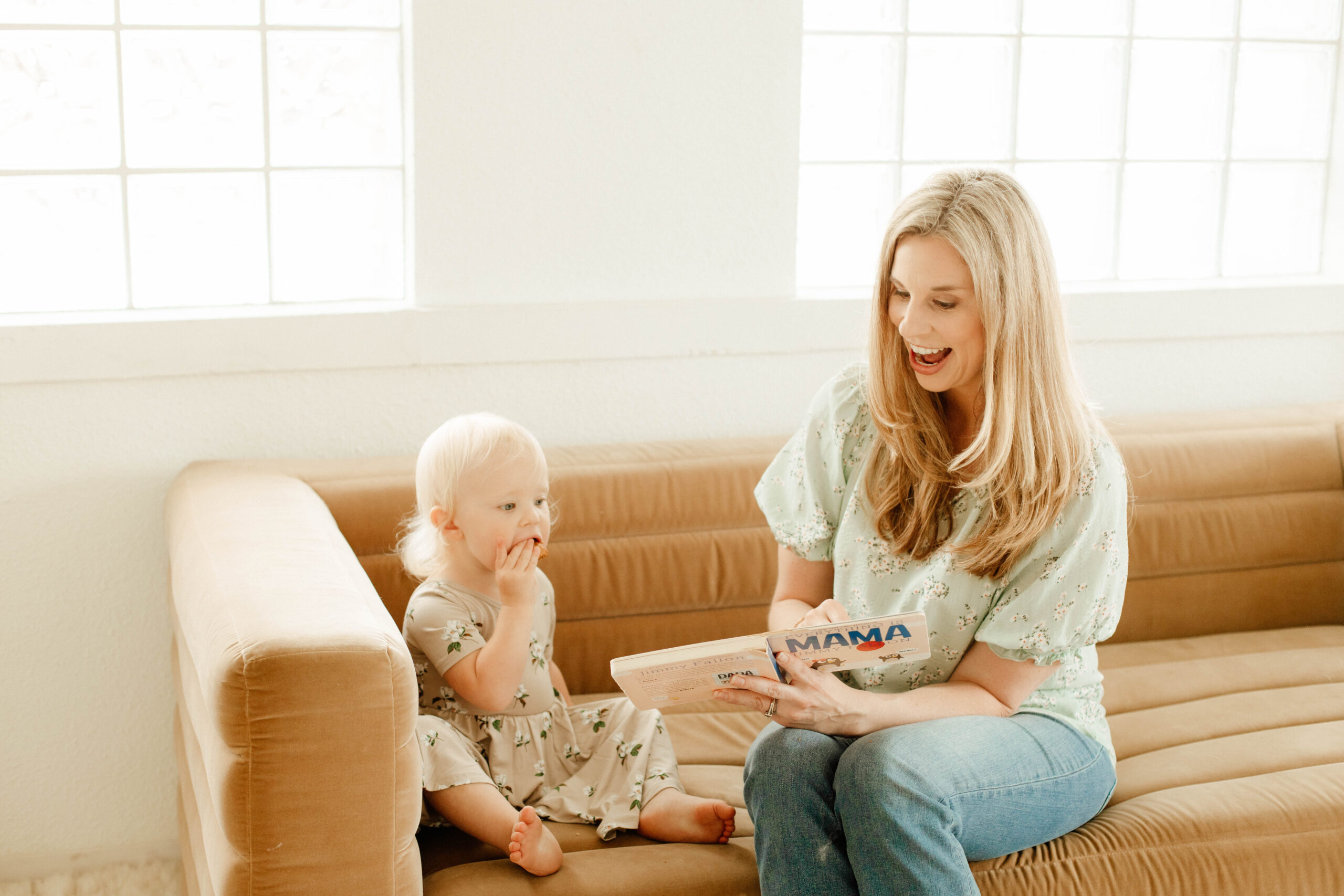
As a Pediatric Speech-Pathologist, I do a lot of talking! There is another strategy I use just as often, and that’s waiting. Waiting is a powerful tool. It provides a child with the opportunity for communication and a meaningful context for language learning. When we wait, we are also giving a child extra time to process, which can be very beneficial. Below are several ways Speech Pathologists use waiting. Here are ways you can use it throughout the day:
1) Speech Pathologists give a little…then wait.
When we give a child “just a few,” we create an opportunity to ask for more. Give a few crackers instead of the whole package or put the top back on a container before offering more.
2) Speech Pathologists put things in view, but out of reach….then wait:
This creates an opportunity for your child to request what they want and to initiate communication. Put favorite toys on a shelf or items of interest in hard to open, clear containers.
3) Speech Pathologists give a choice…then wait:
Giving a choice gives your child a chance to initiate communication. It also gives them some control in a world they have little control over. Just make sure both options are choices they can have! The choices themselves also help build vocabulary (“Do you want red or green”)?
4) Speech Pathologists give your child something they need help with…then wait:
Play-Doh containers are notorious for being difficult to open. Give one to your child anyway and give them a chance to open it. When they request help, you are creating an opportunity to learn words such as “help” and “open.” Hard to work toys such as wind-up toys are another great opportunity to work on initiating communication.
When we wait, we are not necessarily waiting for a word. We are waiting for a child’s best attempt at communication. This may be looking, pointing, or making a sound. If your child is using single words, expand their utterance by adding a few words and saying it back to them. By reinforcing a child’s best attempt, we can shape their communication into more mature speech and language. If you are concerned about your child’s speech and language skills, contact a pediatric Speech Pathologist.

Brooke is the owner of The Speech Dynamic LLC , where she provides play based and family centered speech and feeding therapy. in the Greater Houston area, She is the co-creator of “Wiggle time,” an interdisciplinary curriculum for pediatric therapy. She has presented at The North Carolina Exceptional Children’s Conference regarding embedding language into routines. She has also shared her expertise on a panel for The University of North Carolina at Chapel Hill. Brooke has a passion for helping families understand the importance of play for speech & language development






